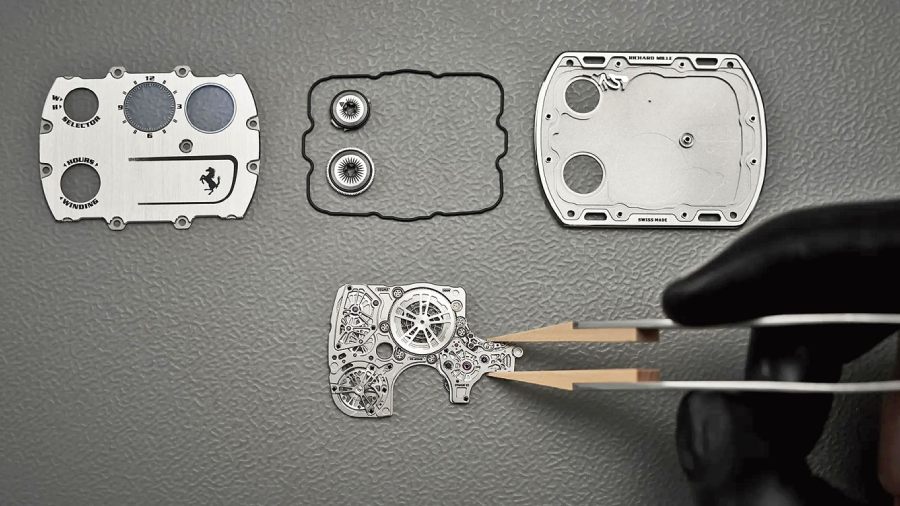To most people in their daily existence half a millimetre means very little for all practical purposes. That, however isn’t the case in the world of high-end watchmaking and for Richard Mille and Ferrari
There are many ways for a maker of mechanical watches to show off its technical prowess. Going thin is one. Around the 1960s there was a trend of slim watches — the Twiggys of the watch world so to speak. And while most watchmakers made these fashionable watches, the standards weren’t too exacting as long as they wore lightly on the wrist. Under 10mm was not too bad.
Piaget made a name for itself as a maker of slim watches with its Altiplano models as did Jaeger LeCoultre with its Master Ultra Thin line. While they were no doubt slim timepieces, they were nowhere near the extreme levels we are seeing today. After all, they were meant to be daily wearers that could stand the strain and they had to be stiff enough to not throw the running gear out of whack with flex if they came under pressure.

The Richard Mille RM UP-01 Ferrari that is the current holder of the record for the thinnest mechanical watch in the world has in a way deconstructed a watch component-wise and spread them across a flat plane rather than stack them to achieve a pretty unbelievable thinness of 1.75mm
The race, so to speak, to make the world’s thinnest mechanical watch probably started with the Piaget Altiplano 900P in 2013 when it limboed in under the 4mm mark with a thickness of 3.65mm. That set off a reaction where others tried to beat that mark. So, next up was Jaeger LeCoultre with the Master Ultra-Thin Squelette two years later that beat the Altiplano by 0.05mm and set the benchmark at 3.60mm. For a while it looked as if that would be the mark to beat.
In 2018, Piaget came back with an Altiplano Ultimate Concept that was just 2mm thick, knocking a cool 1.6mm off the JLC’s mark. That was a concept that was turned into a production model in 2020. And this is where the standards of conventional watchmaking had to make way for totally new ways of watch construction. Delayering was one thing that happened. The Altiplano’s back cover also acted as the base plate that held the mechanicals together.
This March, Bulgari displayed the Octo Finissimo Ultra, which took the Piaget idea a step further. While Piaget had done some destacking of the innards and placed them side by side, the Bulgari did so entirely and managed to knock 0.2mm off the Piaget mark with its 1.8mm thickness (thinness?).

For all Bulgari’s efforts it has been upstaged in just about four months by the Richard Mille RM UP-01 Ferrari, which ticks in at 1.75mm. It’s a hand-wound watch that looks more geeky than a smartwatch. Conceptually it is very similar to the Bulgari but with Ferrari it looks more like a car instrument cluster.
In fact, this is a big break from the past for Richard Mille as well. It is known for big and colourful watches. This almost monochromatic and extremely simplistic looking piece is not something that one expected. Besides, there’s a raft of innovations here, one of them being the winding mechanism that has to be operated on the face with there being no crown. The time adjuster is similarly placed as well.
The solution to prevent flex was grade 5 titanium, a commonly used alloy that is super rigid and used where precision and high performance are important. Titanium was also used for the balance wheel that was specially developed for this watch. And everything is on the same plane, including the hairspring. The time reserve is 45 hours in a watch that’s thinner than a coin. Quite a feat, that one!
Pictures: Richard Mille











